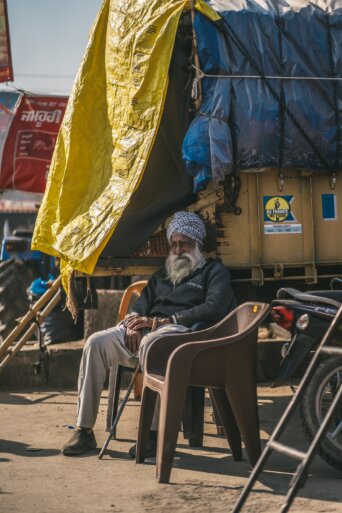- About
- Topics
- Story
- In-Depth
- Picks
- Opinion
- News
- Donate
- Signup for our newsletterOur Editors' Best Picks.Send
Read, Debate: Engage.
| topic: | Refugees and Asylum |
|---|---|
| located: | India, Afghanistan |
| editor: | Bindu Gopal Rao |
A 2021 report by the Rights and Risks Analysis Group (RRAG) pegged the number of refugees in India at 417,000, of which 20,000 arrived in 2021 alone. With no established laws to govern these people, the refugee crisis is something that needs urgent attention.
India has no formal law established for refugees and yet there is a continuous exodus from neighbouring countries into its borders. In the time after the Afghan war, the economic crisis in Sri Lanka, the issue of Rohingyas from Myanmar and the growing phenomenon of climate refugees, this is probably the most important time to consider making a law for this phenomenon.
In the absence of a specific refugee law, India still handles unregistered migrants under The Foreigners Act of 1946. While the National Human Rights Commission (NHRC) has drafted model laws around refugees and asylum, these have not been implemented. Additionally, India has not signed the United Nations Refugee Convention of 1951 nor the 1967 Protocol Relating to the Status of Refugees, which makes it pertinent to have specific legislation governing refugees and asylum seekers. This is also because this will ensure a sense of uniformity and legal sanctity for ensuring basic human rights are protected.
Additionally, thousands of refugees are not even recognised by the government, which makes it hard for them to make ends meet. There is an inconsistent policy toward refugees based on the relationship with the country they are coming from or based on domestic politics. For example, India provides assistance to Tibetans and Sri Lankans, but Rohingya Muslims from Myanmar are considered a security threat. In August 2021, the Indian Government reported that all Afghans, irrespective of religion, could apply for the ‘e-Emergency X-Misc Visa’ online. However, the ground reality is something that is hardly known as there is little transparency about how many refugees are granted visas.
The Tamil Nadu government announced a package of INR 317.4 crore for assisting Sri Lankan refugees. Likewise, the United Nations High Commissioner for Refugees (UNHCR) India, the UN Refugee Agency, is said to have spent over $14.2 million to cover the humanitarian needs of these refugees in 2021. However, this aid is not reaching all kinds of refugees and without formal assistance from the government, asylum seekers and refugees can neither find work nor homes to live in. Also, the condition of most refugee camps is quite deplorable and living in these camps for extended time periods is becoming harder for the refugees.
In January 2022, the NHRC had a discussion around the need for a refugee law to mitigate ambiguity and Dr. Shashi Tharoor, a Member of Parliament, introduced a Private Member's bill in February 2022 to provide a legal framework to govern refugees that details the conditions for their protection and administration. However, this is very unlikely to be quickly passed into law. A counter-discussion for these laws stems from the fact that they could be potentially misused by anti-nationals and criminal elements.
While there is no easy answer, there is a need for a law to ensure that human rights are protected. The burning question, which currently has no answer, is how long will this wait be?
Photo by Rupinder Singh

